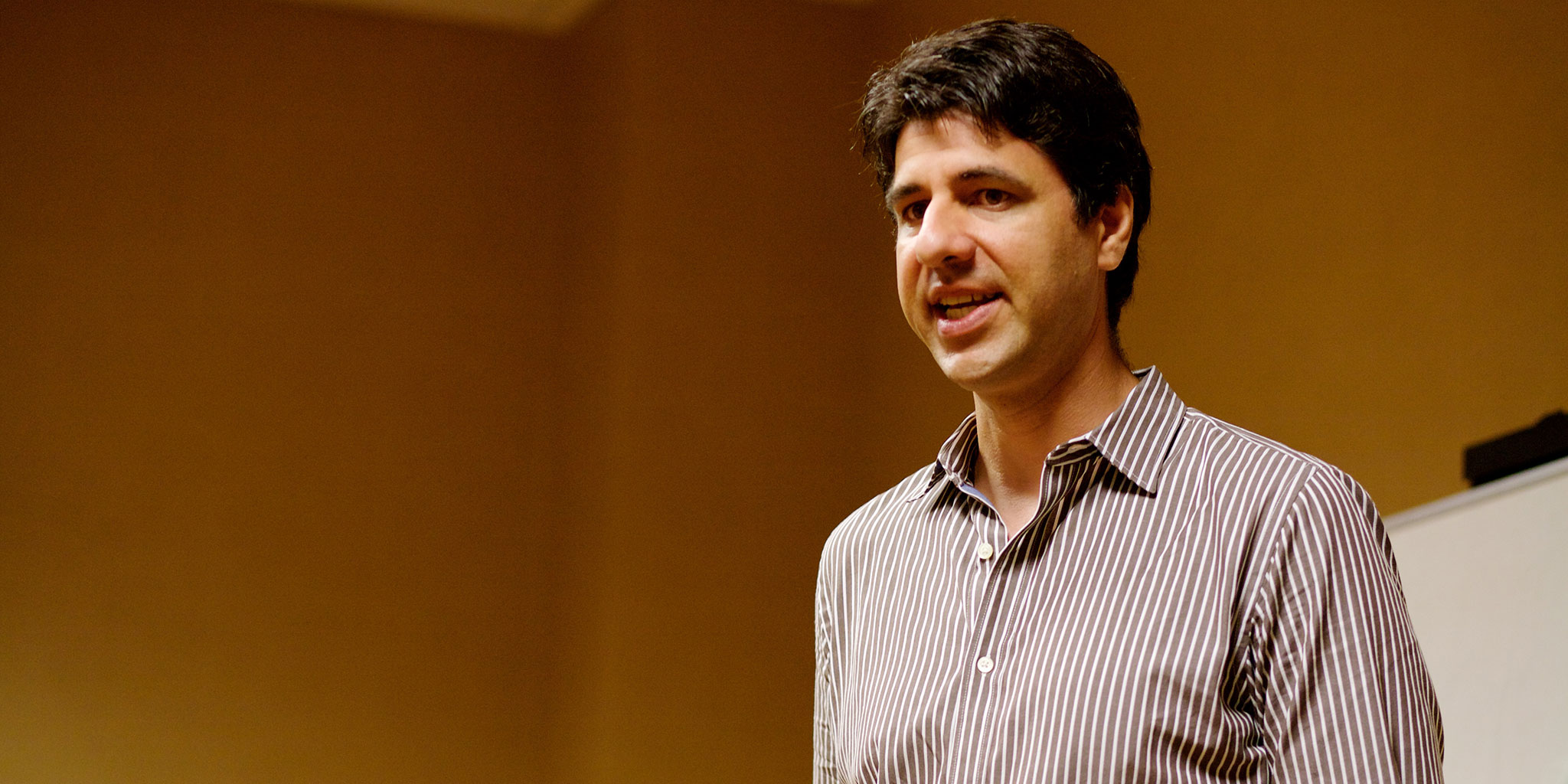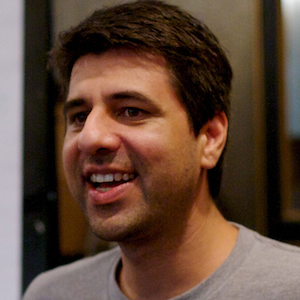Interview with Sean Platt
Michael Sliwinski: Can you please introduce yourself to our readers?
Sean Platt: My name is Sean Platt. I am currently one-third of Sterling & Stone, which is a small boutique publishing company. It’s primarily me, Johnny Truant, and David Wright. We’re professional storytellers. At Sterling & Stone, we have around 60 different titles in eight different little separate imprints or genres. Very recently, we’ve added a fantasy imprint, and that’s run by Garrett Robinson.
Michael: And you are the most productive author in the world :-)
Sean: I don’t know whether that’s an accurate statement, but thank you!
Michael: As a ghostwriter you wrote three million words in three years! That’s amazing.
Sean: I learned to write really fast really early on. I didn’t go to school to do this, so I think that was really helpful, because I didn’t have a lot of bad habits to unlearn. I was lucky enough (although my parents certainly didn’t think so at the time) to drop out of high school and so, I started my own business very early. I guess my mind has always been more entrepreneurial.
Michael: So you always wanted to become a writer?
Sean: I never thought I would write. It wasn’t even on my radar. It was my wife who constantly encouraged me to write. She’s a school teacher, and she would always say, “You should write! You should write!” And I always ignored her because … I don’t even know where the commas go! And then just seven years ago, I started writing, and I felt like it was very natural. I was enjoying it a lot. But I had to get my start somewhere, so I started writing Q*bert articles. Just really crappy, $5 each, SCO articles. I contributed to the dead skin of the Internet. But it was all I could do then, because we were closing our business so that I could focus on writing. The only way I could make money was to write a lot of those articles. So I would write, you know, 20 to 25 a day.
Michael: Wow!
Sean: Yeah… These were 500 or more words each. So that meant that on my leanest day, I would still write 10,000 words, and I just got really, really fast.
Michael: How did you do that? It seems you’d just sit down and start writing!
Sean: I built systems so that I could get really fast. I would lay all 20 articles at once, write the headlines, outline them all at once, and then just fill in the blanks. And I would get really fast at it. And, once I learned to write really fast, I thought, okay, I can write 10,000 words, now I have to really elevate the copy. I have to elevate the quality of the copy and get paid more per word.
Michael: What was your solution?
Sean: I learned to write a lot of marketing copy, a lot of sales copy, sales letters, email autoresponders, things like that. Because they just paid so much more! And I got really good at that.
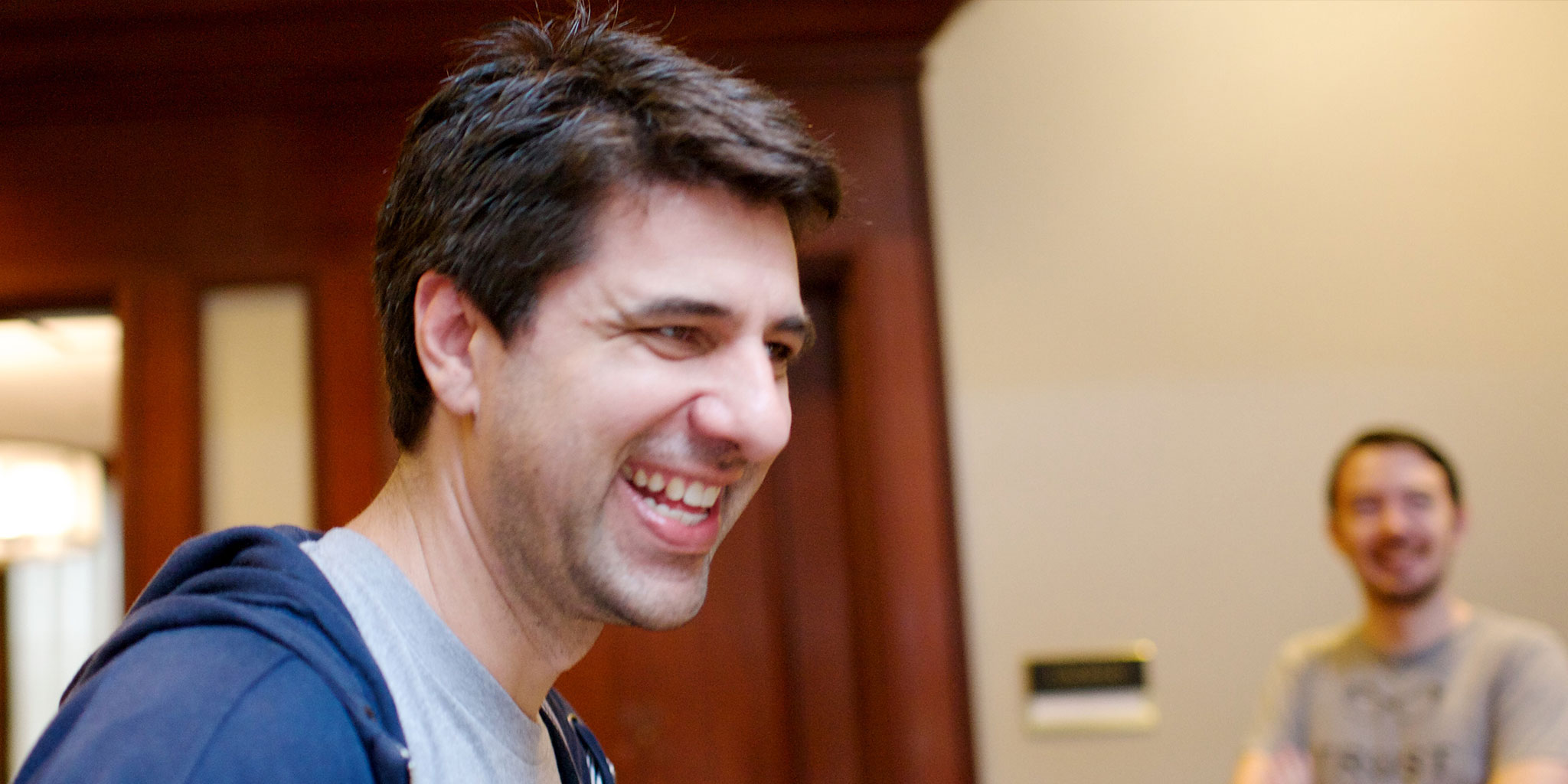
Michael: How did you switch to writing books?
Sean: It was always my dream to write fiction and not sales copy. Although learning to write sales copy has helped me become a better fiction writer. Anyway, by 2011 I’d done a few years of ghostwriting. I ghost-wrote everything, from wedding vows to sales letters, to fiction books and memoirs. I knew how to write fast and fluid, and with quality.
Michael: So what happened in 2011?
Sean: It was kind of open season for the Kindle. I realized that I could put a book out there. Together with my writing partner at the time, Dave, we did a serial called Yesterday’s Gone, which was a lot like a TV show. A very modern cable TV show with strong cliffhangers. We put it out in six episodes and called them “episodes,” and bundled it all together and called it a “season” instead of a book.
Michael: And that series took off, didn’t it?
Sean: Yeah. And we realized that we needed to release a book a week, all through the year. A book at the time was 15,000 to 20,000 words, essentially an episode of whatever series we were doing. And we maintained that throughout the first year. And that was kind of the birth of our business model. We’ve been doing it ever since.
Michael: You guys still publish that often now?
Sean: We still maintain a good pace of production. We put out multiple books each year in different genres. And we’re only just ramping up now. We’ll produce and publish even more in 2016.
Michael: It’s really impressive. What is the key to this speed? Speed of typing? Speed of thinking? Speed of, I don’t know, coming up with ideas? How do you get to be this fast?
Sean: I think a lot of people make a mistake and think there isn’t a link between quantity and quality, or if there is a link, that it’s negative, right? If you’re shoveling out so many words, they can’t be very good because they’re coming so fast. And I don’t think that’s true at all.
I think, actually, the faster you write, the better the outcome is. And I haven’t just seen this in my own work, but in other authors that I work with too. When I know they’ve struggled through copy, it’s usually a little bit messier. When I know they just wrote something really fast, it’s usually very good.
Michael: So what’s so special about writing really fast? Why do you think it makes your writing better?
Sean: That’s because it comes from the flow state. A writer is in their most natural thinking environment when they produce these words. Writing is just articulation on the page. And when you speak really fast, it’s because you’re excited about what you’re saying and ideas are really fluid. And writing is exactly the same. The faster you write, the closer you come to your most natural voice.
Michael: I guess they teach something totally opposite at schools or writing workshops…
Sean: Exactly. People learn to self-edit themselves as they go, and to question every sentence, and really labor over that work.
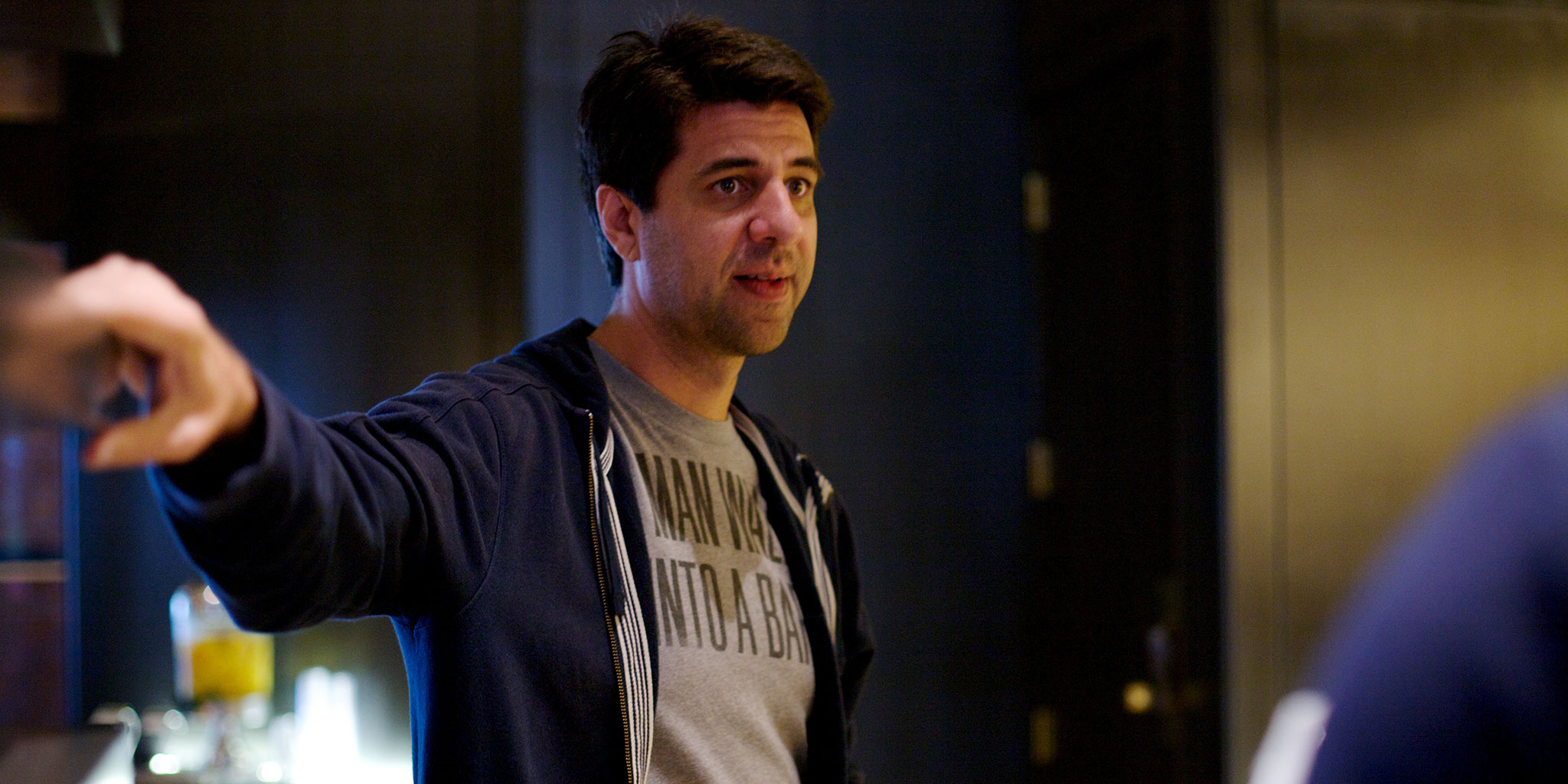
Michael: So what’s your advice, then?
Sean: I think good writing requires a lot of pre-writing and re-writing. You have to be really prepared to sit down and write. I think writer’s block comes from not being excited about what you’re going to write or not being prepared about what you’re going to write. And, you know, whether I’m writing something in nonfiction or something that’s fiction, I’m very prepared when I come to the page. I know my characters, I know what’s going to happen… So it’s easy to write.
Michael: Are your partners equally prolific?
Sean: Johnny is the one I produce the most words with. He writes about 6,000 high quality, publishable fiction words every day, which is 30,000 words a week. And that’s because he’s very prepared.
Michael: What does such a preparation process look like?
Sean: It’s my job in the company to make what we refer to as “pre-production packages.” That comes with all the casting, locations, characters, and all the story elements. So that when he starts writing, he just understands the story and the characters and everything else, and he can just sit down and write without figuring out what has to happen next.
Michael: All right. So that’s pre-writing. What about the re-writing?
Sean: The re-writing process is really important, because you don’t just write something and then it’s good to go. That never happens. And I think that’s one of the things that impedes a lot of writers, both in the quality of their work and the speed at which they can produce: second-guessing themselves constantly, worrying that something isn’t good enough, or thinking that it has to be really perfect that first time.
And, you know what? One hundred percent of first drafts are relatively crappy. You have to be willing to make something that sucks and turn it into something that’s much, much better. We usually have three drafts which we then polish, polish, polish. In the first draft, you just say it. It doesn’t matter how well articulated that is. It’s all about getting it out of your head onto the page. Second draft is say what you mean. And third draft is say it well. And that’s when you really start to find that voice and fine-tune it. And then after that, you can sand it down a few times.
Michael: So, at the very, very least your stories get changed at least five times?
Sean: That’s right. There is an outline phase, a rough draft, an edit, a polish, a line edit, a copy edit, and then a beta read, like all the way through. So, even though they’re produced quickly, compared to authors that write one or two books a year, our speed is much faster. But we have the systems that support that speed. And everything still has as many, if not more, quality checks as other writing out there.
Michael: It’s basically the same when you’re recording a video. When you record a video, you have to prepare the location, the script, everything else. And only then you start to record.
Sean: Right. But if you made it up as you went along, no way! You just have to be really prepared. A really good example for this is Robert Rodriguez, a filmmaker.
He made his movie El Mariachi for $7,000, right? And no one knows how he did it. And there were many ways that he did it. One of them was he was prepared. He did a lot of this in his head, because he couldn’t afford to actually buy reels of film, so he just used remainders, he just used the little strips at the end and cobbled them all together. While a lot of movies are actually born in the editing room, his wasn’t. He knew exactly what he was going to do. So he made the cheapest movie ever and it did well.
Michael: Did you have to practice for a long time to become a fast writer?
Sean: Oh, it’s like any skill. I mean, it’s muscle memory. You have to write all the time to stay fast.
Michael: You said your job is to prepare these “pre-production packages.” Does it mean you slowed down with your own writing?
Sean: I work with three other writers, and my main job is pre-production and postproduction. I prepare the stories, and then I finish off the stories. Dave, Johnny, and Garrett are all producing rough drafts.
Right now, I’m also adapting a lot of our stuff into screenplays, which is a very different kind of writing. So, it’s not about speed at all. It’s a lot of thinking, and it’s a much slower process. It’s a little tedious…
Michael: How do you plan your day when you are just writing?
Sean: Before, I could write about 2,500 words in a good hour. So, 10,000 words a day used to be really just four hours of work. But these are very focused hours. There are no distractions. I know what I’m writing. I’m in flow. I’ll write for 30 minutes, take a couple of minutes where I just walk around, maybe get some water, and then sit right back down and hit it again. And in that time I am very focused, I’m very prepared.
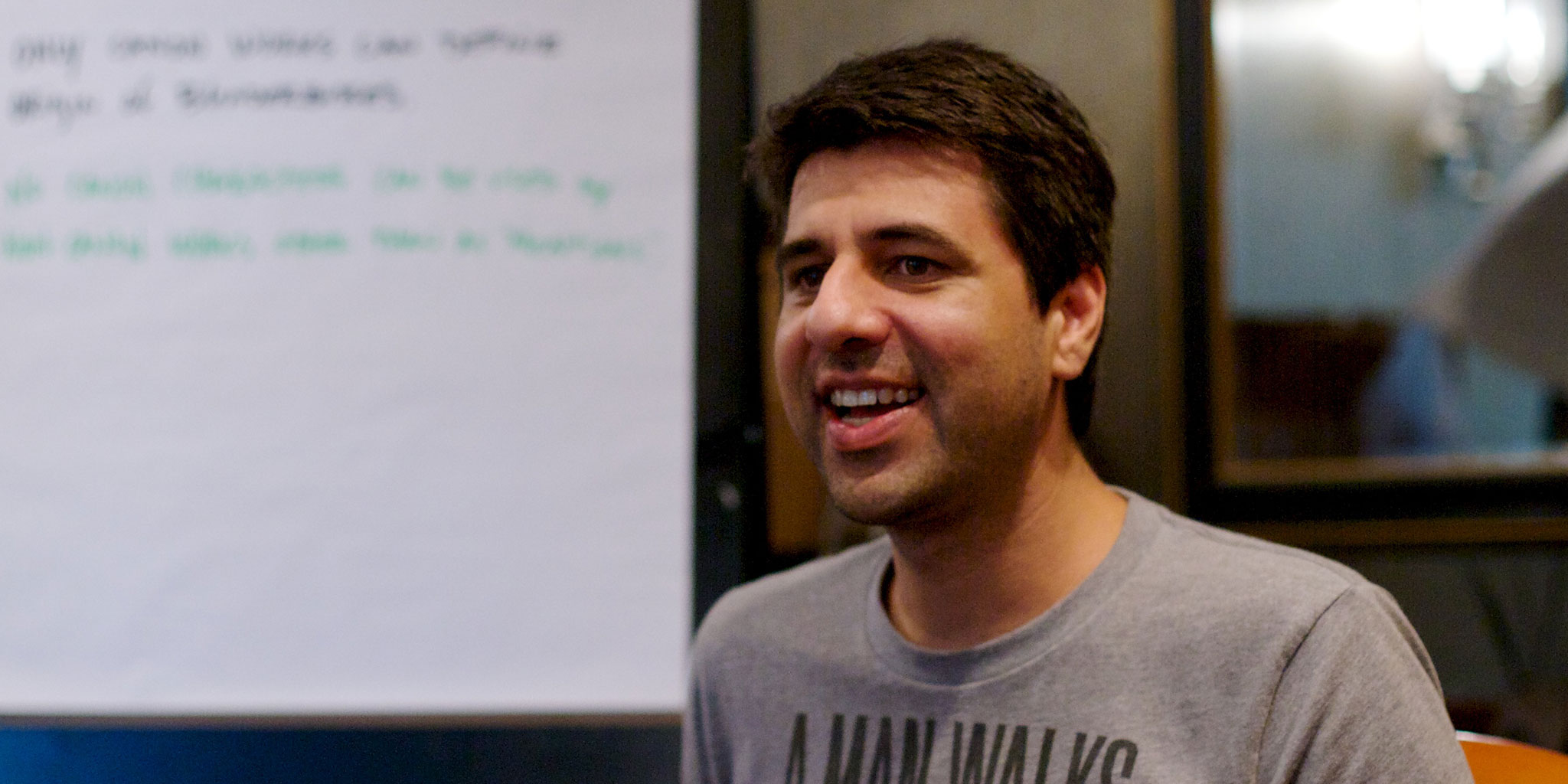
Michael: That’s really intense!
Sean: My longest stretch was writing every single day for nine months. And I wrote every day, like no matter what. And I went from about 1,300 words an hour to about 2,500 words an hour. I was just on fire every time I sat at the keyboard. But then I stopped writing every day, and it got much, much harder.
Right now, I couldn’t hit 2,500 words an hour if I tried. You have to really build up to it. It’s like going to the gym. If you go constantly, there are certain things you can do, and then if you stop going to the gym for six months, and you go again, your body is going to rebel, it’s going to ache.
Michael: How do you get in a writer’s flow? Do you have any kind of ritual or any way that helps you get really focused?
Sean: Blocking out the outside world and training your brain to stay focused. There are also certain places where I write. My brain likes to be in a certain spot at a certain time of day. And preparation, which we’ve already discussed, is probably the most important thing. But other than that, it’s knowing yourself. It’s knowing your weaknesses. If you tend to make excuses for yourself, like, “I’m hungry. I haven’t eaten.” Then eat. But eat ahead of time. If you know you’re going to check email, that you have that tendency, check email ahead of time, and then close it. Don’t give yourself room to slip out of excuses. Just lock it down and do it.
Because flow does not come immediately. It comes from work, and you’re not going to find the flow state in five minutes. It’s like runner’s high. You get it after you’ve been running and sweating. This is hard, and now it feels good.
Michael: Actually, today I went for an eight-kilometer run [~5 miles]. It was just during the last mile when I found my runner’s high. And I didn’t want to stop because it felt great and I was doing really well.
Sean: Exactly.
Michael: One of your latest books is a nonfiction book about self-publishing and writing. Can you tell us about the difference? I mean, how you felt writing this book instead of doing fiction?
Sean: That’s a great question. I like writing nonfiction, because it gets really helpful, and I feel like it really touched our audience. And our podcast audience wanted us to write this book, which is why we did it. The book is called Write. Publish. Repeat. and we wrote it two years ago. And this year we wrote a sequel: Iterate and Optimize. We spent those first couple of years writing, publishing, and repeating, and now we’ve spent a couple of years iterating and optimizing, and here’s what we’ve learned in the business since.
However, it’s not as fun… Writing fiction is much more fun. I write the nonfiction because I feel like it’s really good for our audience. We’re leaders in the indie community, and we should share what we know. But, yeah, telling stories, it’s my favorite…
Michael: So many people want to write a book. What advice do you have for them?
Sean: Just get started! But beware :-) Some people glorify and romanticize what the process is going to be like. They see finishing the book as some sort of a finish line that will validate their lives. The think that all of a sudden, glory will rain from the sky. And it’s nothing like that. For me, finishing a book is another day at work. I’m a craftsman. I love to tell stories, but I don’t romanticize it.
Writing is all about sitting down and doing the work. And if somebody wants to write a book, they shouldn’t sit and wait around for inspiration. They should make sure the inspiration shows up when they sit down at the keyboard, well prepared and focused. And it’s giving yourself permission to suck and getting that first rough draft out, and knowing that you can make it better later.
Michael: We’ve already said that the writing process is really tough and requires discipline, right?
Sean: That’s it. I think it’s very easy to have built-in excuses. I don’t have enough time, I don’t know what to write about…
Well, if you don’t have enough time, make time. Everyone can get up half an hour earlier, everyone can watch a little less TV. There are things that you can cut out of your life. And in fact, the accurate statement here is “I don’t want to make time for writing,” or “I haven’t made time for writing.” It’s not, “I don’t have time for writing.” Because everybody has 15 minutes a day. Like, if that’s all you can get, a couple of hundred words, 15 minutes a day, that’s still a book a year. It’s just making small things add up to big things. And if you don’t know what to write… Well then, figure it out :-) If you don’t know what to write and you’re not willing to figure it out, then you don’t really want to write a book. You just want to have written one. And those are two different things.
Michael: You seem to emphasize that it is not enough to be a good writer in order to be a successful writer today. You also need to be an entrepreneur and marketer to be able to effectively build an online audience etc.
Sean: Right. I think that’s really important. I like to bake marketing into the way we behave, the way our business operates. I think there’re two phases of creation. There’s the part where you’re the artist, and there’s the part where you’re the entrepreneur. And when you’re just making your book, when you’re creating this thing, that’s Part 1. And Part 2 is, now it’s done, it’s a product, and I’m going to sell it to the world.
Johnny articulates this really well in Write. Publish. Repeat. He says it’s sequential. You can’t think as an artist or as an entrepreneur. You have to think as both. And when you’re creating your art, that’s when you’re the artist. And when it’s all done, you have to take your artist hat off and become something else, because now it’s time to sell it. And you can’t be too precious about it, because, if you are, you’re not going to find the right audience.
Michael: I remember reading an interview with a famous author (Kiyosaki, I think), and the interviewer asked about his advice for beginning writers. He said, “Get a sales course.”
Sean: Right. That’s good advice.
Michael: “Why?” the interviewer asked. “Well,” he replied, “You described me as a best-selling author, and not a best-writing author.”
Sean: Right. There’s a lot of truth to that. Especially now, when the argument is, should I be traditionally published? Or should I be indie? And I think that being an indie gives you a lot of control and a lot of power, and it’s really awesome. Our company is fiercely independent. But I also understand that means that I have to think of my writing as a business. And if I don’t, I’m going to fail – people who do know how to sell are going to lap me.
Michael: Let’s wrap it up with your plans for this year.
Sean: We just added a fantasy imprint, and we want to make movies and video games eventually. Pretty much we want to do it all!
Michael: Ambitious plans! :-)
Sean: Last year, we launched a podcast network which is doing well. This year, we have a really big show debuting. That’s a game changer. You know, I’m very, very excited about that. And we are working on an app called StoryShop. Basically, it will help you outline a story. I wanted an app that would make that easier for me and found a team of developers ready to go on it. We anticipate having StoryShop finished and ready for use around April of 2016. Beyond that, we’ll just be publishing a lot. We’ll be getting better at what we do. And of course, we’ll be sharing it all with the indie community, because that’s what we do.
Watch the interview with Sean:
